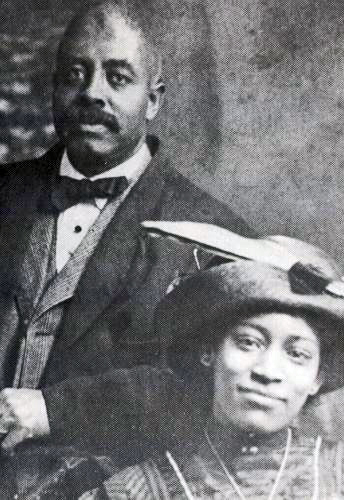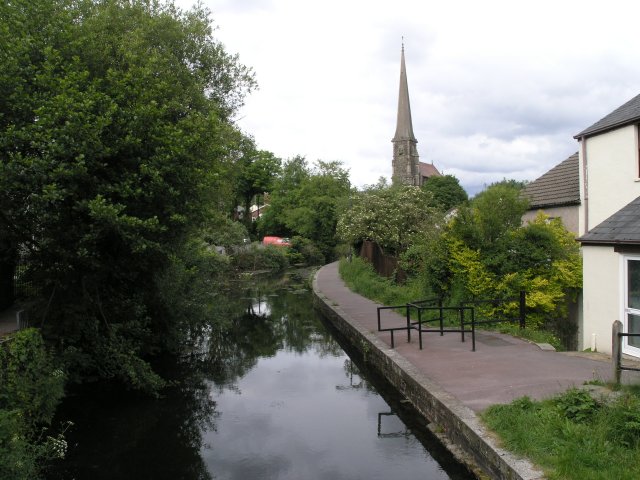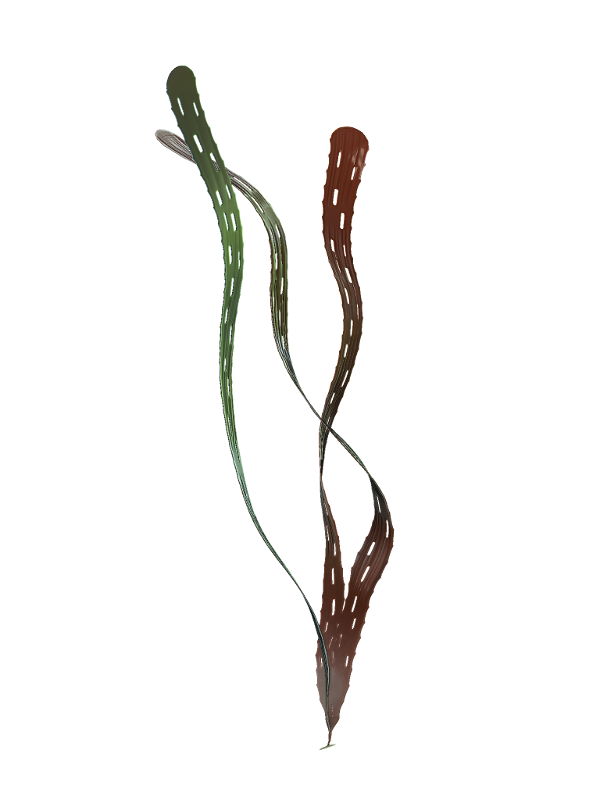|
Y Blew
Y Blew (The Hairs) was a Wales, Welsh rock band founded in 1967. Although short lived, having pressed and released just one single, the band are recognized as the first rock band to sing in Welsh language, Welsh. Formed in 1967 by five students from the University of Aberystwyth: Maldwyn Pate (vocals), Rick Lloyd, Richard Lloyd (lead guitar), Dafydd Evans (bass guitar), Dave Williams (keyboards) and Geraint Evans (drums). The band took their name ("The Hairs" in English) from the long-haired fashion that was popular at the time. The band raised £2,000 to support their recording and touring, and played their first gig in the Memorial Hall at Tal-y-bont, Ceredigion, Talybont at Easter 1967. The band took their music on the road that year with three tours, including playing at the National Eisteddfod in Bala. In summer 1967 they released their one and only single, ''Maes B''. The band ensured their gigs were well publicised, and as well as distinctive posters and flyers they use ... [...More Info...] [...Related Items...] OR: [Wikipedia] [Google] [Baidu] |
Rick Lloyd
Rick Lloyd is a British composer and musical director best known as a member of the original Flying Pickets who had a Christmas number one hit in 1983 with a cover of Yazoo's " Only You". Although the Flying Pickets are known for making a cappella covers of other people's songs, the original songs on their 1984 album '' Lost Boys'' were written by Rick Lloyd including the track " Wide Boy". Biography and career Lloyd was born in London in 1947, during his time at Aberystwyth University, he joined the Welsh-language four-piece rock band Y Blew of which he was the lead guitarist. From 1971–1973, he was signed as writer to United Artistes Music (London). In 1981, he collaborated with the author Sue Townsend on a musical based on the life of Daniel Lambert. He composed "Dives in Omnia" for the 1987 Channel 4 series ''Porterhouse Blue'', starring David Jason, which led to him becoming the joint winner of the 1987 BAFTA TV Award for Best Original TV Music. He also composed the ... [...More Info...] [...Related Items...] OR: [Wikipedia] [Google] [Baidu] |
Corris
Corris is a village in the county of Gwynedd, Wales, about north of the town of Machynlleth. The village lies on the west bank of the Afon Dulas (which here forms the boundary with Powys), around that river's confluence with the Afon Deri. Its railway station is the headquarters and museum of the Corris Railway, a preserved narrow gauge railway. The area has a community council. The community council system replaced the former parish council system and tackles local issues, acts as a contact point between local government and residents for information and resources on various issues. The community elects one member to represent Corris/Mawddwy ward of Gwynedd Council. Besides Corris, the ward covers Mawddwy community to the north-east. __NOTOC__ Notable people * Rhisiart Morgan Davies (1903–1958) a Welsh physicist. * John Disley (1928–2016), Olympic medal winning athlete at the 1952 Summer Olympics in the 3000 metres steeplechase The 3000 metres steeplechase or 3000-mete ... [...More Info...] [...Related Items...] OR: [Wikipedia] [Google] [Baidu] |
Jimi Hendrix
James Marshall "Jimi" Hendrix (born Johnny Allen Hendrix; November 27, 1942September 18, 1970) was an American guitarist, singer and songwriter. Although his mainstream career spanned only four years, he is widely regarded as one of the most influential electric guitarists in the history of popular music, and one of the most celebrated musicians of the 20th century. The Rock and Roll Hall of Fame describes him as "arguably the greatest instrumentalist in the history of rock music." Born in Seattle, Washington, Hendrix began playing guitar at the age of 15. In 1961, he enlisted in the US Army, but was discharged the following year. Soon afterward, he moved to Clarksville then Nashville, Tennessee, and began playing gigs on the chitlin' circuit, earning a place in the Isley Brothers' backing band and later with Little Richard, with whom he continued to work through mid-1965. He then played with Curtis Knight and the Squires before moving to England in late 1966 after bassis ... [...More Info...] [...Related Items...] OR: [Wikipedia] [Google] [Baidu] |
Hey Joe
"Hey Joe" is an American song from the 1960s that has become a rock standard and has been performed in many musical styles by hundreds of different artists. The lyrics tell of a man who is on the run and planning to head to Mexico after shooting his unfaithful wife. In 1962, Billy Roberts registered "Hey Joe" for copyright in the United States. In late 1965, Los Angeles garage band the Leaves recorded the earliest known commercial version of "Hey Joe", which was released as a single. They re-recorded the song and released it in 1966 as a follow-up single, which became a hit in the US. In October 1966, Jimi Hendrix recorded "Hey Joe" for his first single with the Jimi Hendrix Experience. Authorship The authorship of the song has been contested, and different recordings have credited its writing to either Billy Roberts or Dino Valenti, or have listed it as a traditional song. "Hey Joe" was registered for copyright in the US in 1962 by Billy Roberts, a California-based folk mus ... [...More Info...] [...Related Items...] OR: [Wikipedia] [Google] [Baidu] |
Tamla Motown
Motown Records is an American record label owned by the Universal Music Group. It was founded by Berry Gordy Jr. as Tamla Records on June 7, 1958, and incorporated as Motown Record Corporation on April 14, 1960. Its name, a portmanteau of ''motor'' and ''town'', has become a nickname for Detroit, where the label was originally headquartered. Motown played an important role in the racial integration of popular music as an African American-owned label that achieved crossover success. In the 1960s, Motown and its subsidiary labels (including Tamla Motown, the brand used outside the US) were the most of the Motown sound, a style of soul music with a mainstream pop appeal. Motown was the most successful soul music label, with a net worth of $61 million. During the 1960s, Motown achieved 79 records in the top-ten of the ''Billboard'' Hot 100 between 1960 and 1969. Following the events of the Detroit Riots of 1967, and the loss of key songwriting/production team Holland–Dozier–H ... [...More Info...] [...Related Items...] OR: [Wikipedia] [Google] [Baidu] |
Swansea
Swansea (; cy, Abertawe ) is a coastal city and the second-largest city of Wales. It forms a principal area, officially known as the City and County of Swansea ( cy, links=no, Dinas a Sir Abertawe). The city is the twenty-fifth largest in the United Kingdom. Located along Swansea Bay in southwest Wales, with the principal area covering the Gower Peninsula, it is part of the Swansea Bay region and part of the historic county of Glamorgan; also the ancient Welsh commote of Gŵyr. The principal area is the second most populous local authority area in Wales with an estimated population of 246,563 in 2020. Swansea, along with Neath and Port Talbot, forms the Swansea Urban Area with a population of 300,352 in 2011. It is also part of the Swansea Bay City Region. During the 19th-century industrial heyday, Swansea was the key centre of the copper-smelting industry, earning the nickname ''Copperopolis''. Etymologies The Welsh name, ''Abertawe'', translates as ''"mouth/es ... [...More Info...] [...Related Items...] OR: [Wikipedia] [Google] [Baidu] |
Pontardawe
Pontardawe () is a town and a community in the Swansea Valley (Welsh: ''Cwmtawe'') in Wales. With a population of 6,832, it comprises the electoral wards of Pontardawe and Trebanos. A town council is elected. Pontardawe forms part of the county borough of Neath Port Talbot. On the opposite bank of the River Tawe, the village of Alltwen, part of the community of Cilybebyll, is administered separately from Pontardawe, but has close ties to the town. Pontardawe is at the crossroads of the A474 road and the A4067 road. Pontardawe came into existence as a small settlement on the northwestern bank of the Tawe where the drovers' road from Neath and Llandeilo crossed the river to go up the valley to Brecon. The National Cycle Route 43 from Swansea to Builth Wells passes through the town and the recreation ground. First Cymru provides a bus service linking Pontardawe to Swansea, Neath, and Ystradgynlais. History The name, which translates to "bridge on the Tawe", first appears on a map ... [...More Info...] [...Related Items...] OR: [Wikipedia] [Google] [Baidu] |
Cambrian Records
The Cambrian Period ( ; sometimes symbolized Ꞓ) was the first geological period of the Paleozoic Era, and of the Phanerozoic Eon. The Cambrian lasted 53.4 million years from the end of the preceding Ediacaran Period 538.8 million years ago (mya) to the beginning of the Ordovician Period mya. Its subdivisions, and its base, are somewhat in flux. The period was established as "Cambrian series" by Adam Sedgwick, who named it after Cambria, the Latin name for 'Cymru' (Wales), where Britain's Cambrian rocks are best exposed. Sedgwick identified the layer as part of his task, along with Roderick Murchison, to subdivide the large "Transition Series", although the two geologists disagreed for a while on the appropriate categorization. The Cambrian is unique in its unusually high proportion of sedimentary deposits, sites of exceptional preservation where "soft" parts of organisms are preserved as well as their more resistant shells. As a result, our understanding of the Cambrian bio ... [...More Info...] [...Related Items...] OR: [Wikipedia] [Google] [Baidu] |
Y Blew Record Sengl Maes B 1967
Y, or y, is the twenty-fifth and penultimate letter of the Latin alphabet, used in the modern English alphabet, the alphabets of other western European languages and others worldwide. According to some authorities, it is the sixth (or seventh if including W) vowel letter of the English alphabet. In the English writing system, it mostly represents a vowel and seldom a consonant, and in other orthographies it may represent a vowel or a consonant. Its name in English is ''wye'' (pronounced ), plural ''wyes''. Name In Latin, Y was named ''I graeca'' ("Greek I"), since the classical Greek sound , similar to modern German ''ü'' or French ''u'', was not a native sound for Latin speakers, and the letter was initially only used to spell foreign words. This history has led to the standard modern names of the letter in Romance languages – ''i grego'' in Galician, ''i grega'' in Catalan, ''i grec'' in French and Romanian, ''i greca'' in Italian – all meaning "Greek I". The n ... [...More Info...] [...Related Items...] OR: [Wikipedia] [Google] [Baidu] |
Edward H Dafis
Edward is an English given name. It is derived from the Anglo-Saxon name ''Ēadweard'', composed of the elements '' ēad'' "wealth, fortune; prosperous" and '' weard'' "guardian, protector”. History The name Edward was very popular in Anglo-Saxon England, but the rule of the Norman and Plantagenet dynasties had effectively ended its use amongst the upper classes. The popularity of the name was revived when Henry III named his firstborn son, the future Edward I, as part of his efforts to promote a cult around Edward the Confessor, for whom Henry had a deep admiration. Variant forms The name has been adopted in the Iberian peninsula since the 15th century, due to Edward, King of Portugal, whose mother was English. The Spanish/Portuguese forms of the name are Eduardo and Duarte. Other variant forms include French Édouard, Italian Edoardo and Odoardo, German, Dutch, Czech and Romanian Eduard and Scandinavian Edvard. Short forms include Ed, Eddy, Eddie, Ted, Teddy and Ned ... [...More Info...] [...Related Items...] OR: [Wikipedia] [Google] [Baidu] |





